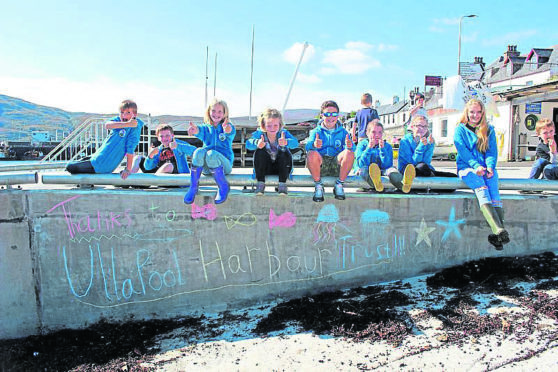Campaigners against the mechanical dredging of kelp in Scottish waters have been left “delighted” as they live to fight another day at Holyrood.
The No Mechanical Dredging campaign had hoped that an amendment would see kelp protected under the Crown Estate Bill.
But it did not garner enough support with only three voting in favour – however, the remainder abstained meaning the amendment to could still pass at a later stage.
The motion was brought by Environment, Climate Change and Land Reform (ECCLR) Committee member Mark Ruskell, and he pushed forward despite Cabinet Secretary Roseanna Cunningham calling for abstentions.
More than 14,000 people have signed an online petition and dozens of West Highland businesses have backed the campaign launched by Ailsa Mclellan from Ullapool.
She said: “We are delighted today, this is a huge step forward in the battle against kelp dredging.
“We will now step up a gear and ensure that communities’ voices are heard, and that the scientific evidence on why kelp is essential and dredging has undesirable consequences is looked at.
“We will make sure that, one way or another, that industrial removal of kelp from Scotland’s seas is never allowed.”
Now Ms McLellan has “welcomed” the support of the Ullapool Sea Savers who she said “have more sense that a lot of adults”.
The Savers include many of the kids who were involved in making the town one of the first in the UK to be completely straw-free and are a mix of primary and secondary school pupils.
Many of them have trained as “dolphin snorkellers” and that means they have first-hand experience of having swum around the kelp forests so news they would be dredged triggered concerns about irreparable damage to the marine environment.
One of the sea savers, Finlay aged 11, said: “Kelp is great to swim in. We see all sorts of interesting fish and other animals. Taking it away would mean these animals have nowhere to go and will die and that’s not right.”
Already the children have sent a letter to members of the ECCLR committee expressing their concerns, eventually giving the letters to Maree Todd to pass on in person.
Commerical harvesting would see up to 30,000 tons of kelp dredged by Marine Biopolymers that maintains it is coming from a “very green perspective” and the technique is sustainable.
